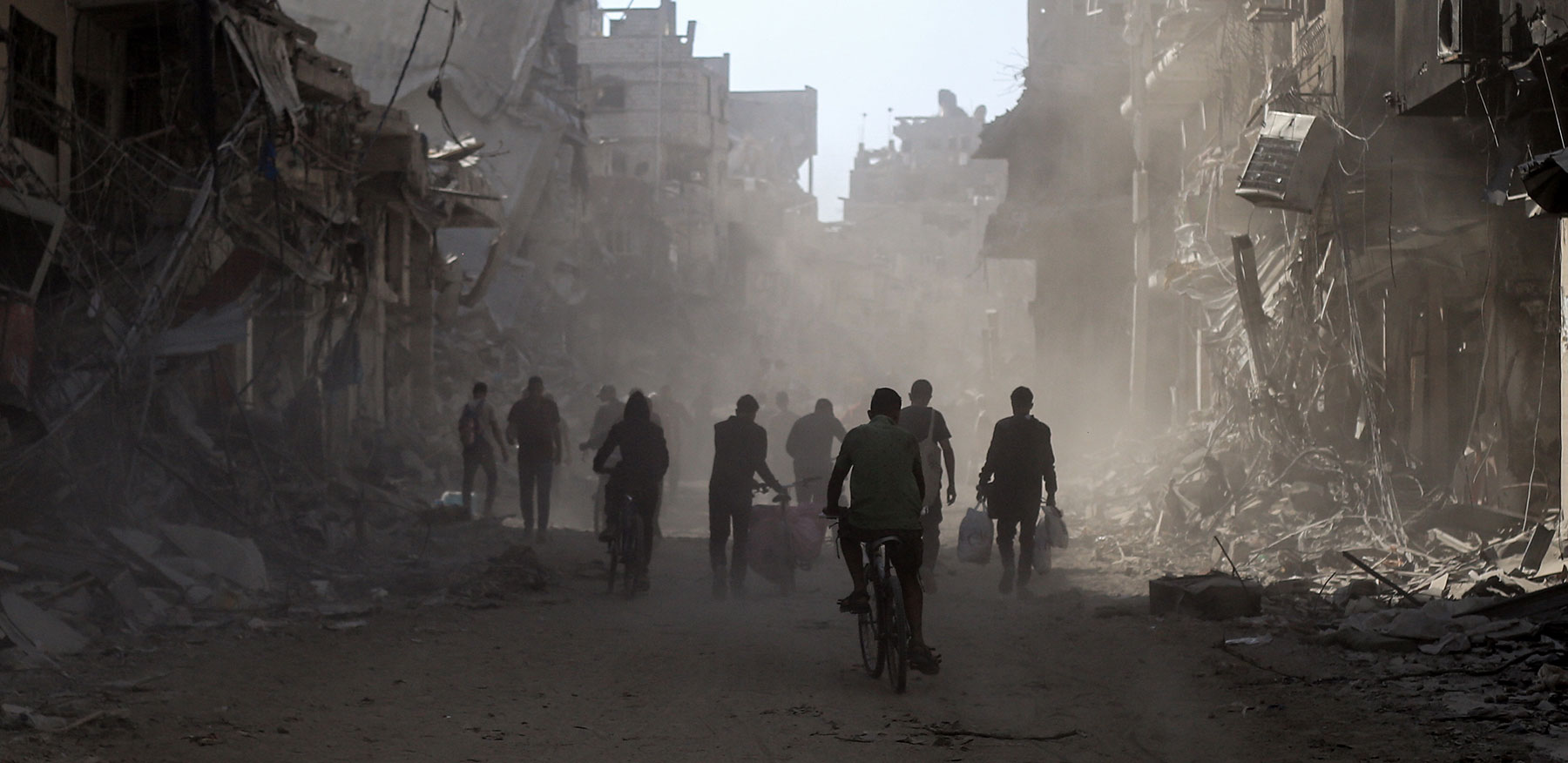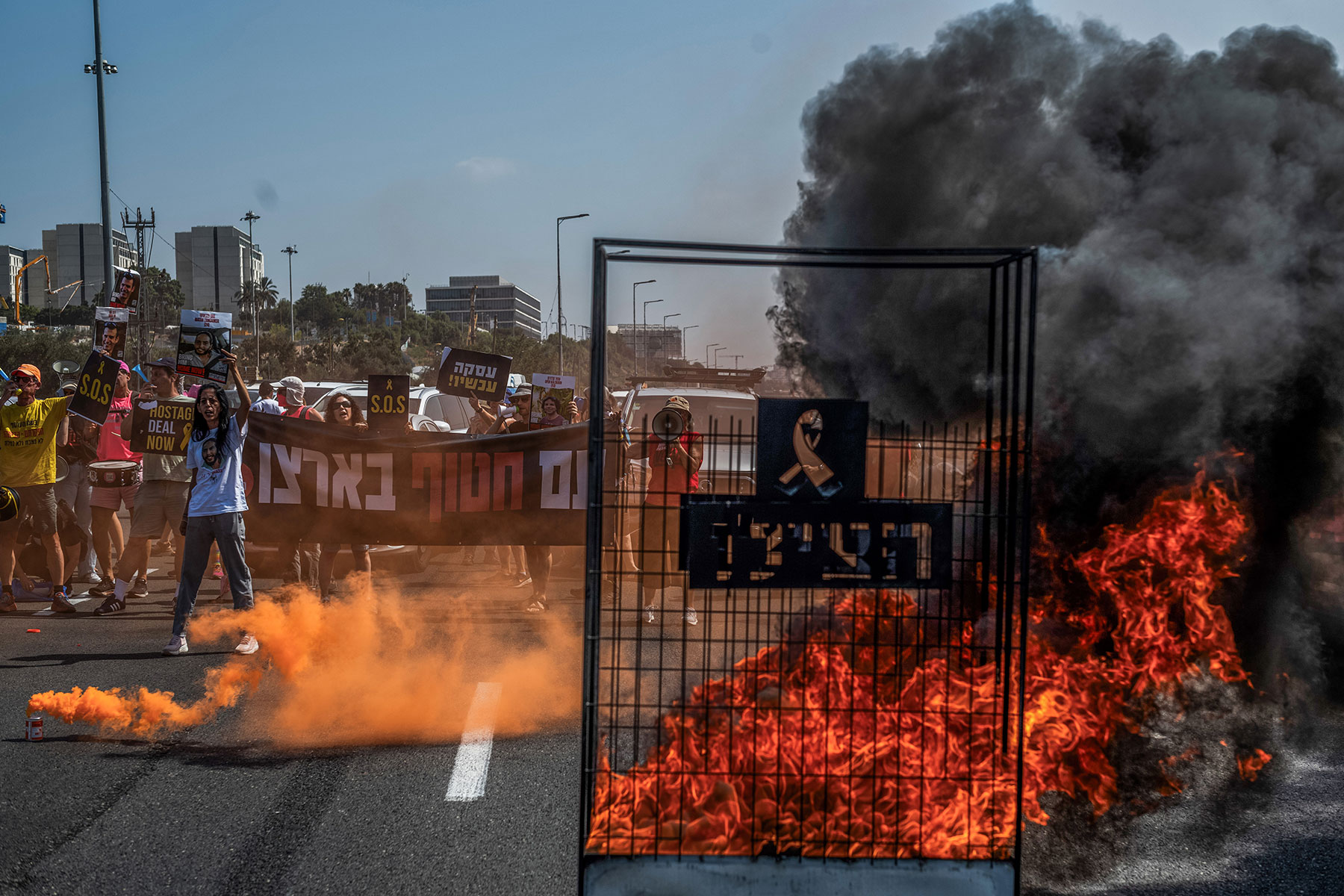Thе targeted killing of Ismail Haniyeh is part of a broader pattern of strategic actions aimed at weakening Hamas and undermining its influence. The assassination carries significant political motto, as targeting such a high-profile figure as Haniyeh aims to weaken political as well as military leadership within Hamas. By targeting the leader, intent might be to disrupt the organizational structure of Hamas, impairing its operational and strategic planning. By eliminating a figure as prominent as Haniyeh, it is believed that Israel seeks to cause internal disarray within Hamas, diminish its symbolic significance, and sow fear among its supporters. The political implications of this assassination extend to the regional power struggle. Haniyeh's assassination, particularly on Iranian soil, can be interpreted as a direct challenge to Iran's support for Hamas. It underscores the ongoing proxy conflict between Israel and Iran, highlighting Israel's determination to counter Iranian influence in the region. This operation is not merely a tactical maneuver but more of a political calculation designed to bolster Prime Minister Netanyahu's standing domestically and internationally.
However, the repercussions of this assassination are likely to extend far beyond the immediate objective of crippling Hamas. Within the organization, the loss of Haniyeh could exacerbate internal divisions, empowering hardliners and potentially sideline more moderate voices. This shift could lead to an escalation in militant activities, overshadowing Hamas political aspirations and further destabilize the region. Moreover, the assassination might inadvertently boost the legitimacy of the Palestinian Authority (PA) as a political alternative, altering the dynamics of Palestinian representation and resistance.
The recent assassination of Ismail Haniyeh in Tehran represents a dramatic escalation in the Israeli-Palestinian conflict, with far-reaching implications for the region and beyond. This assassination underscores an ongoing strategy to disrupt Hamas leadership and operational capabilities, reflecting a determination to dismantle a key pillar of the Palestinian resistance. As the geopolitical landscape becomes increasingly volatile, the assassination raises urgent questions about the path forward and the potential for lasting peace in the Middle East.
This targeted killing of Haniyeh is part of a broader pattern of strategic actions aimed at weakening Hamas and undermining its influence. The assassination carries significant political motto, as targeting such a high-profile figure as Haniyeh aims to weaken political as well as military leadership within Hamas. By targeting the leader, intent might be to disrupt the organizational structure of Hamas, impairing its operational and strategic planning. By eliminating a figure as prominent as Haniyeh, it is believed that Israel seeks to cause internal disarray within Hamas, diminish its symbolic significance, and sow fear among its supporters. The political implications of this assassination extend to the regional power struggle. Haniyeh's assassination, particularly on Iranian soil, can be interpreted as a direct challenge to Iran's support for Hamas. It underscores the ongoing proxy conflict between Israel and Iran, highlighting Israel's determination to counter Iranian influence in the region. This operation is not merely a tactical maneuver but more of a political calculation designed to bolster Prime Minister Netanyahu's standing domestically and internationally.
However, the repercussions of this assassination are likely to extend far beyond the immediate objective of crippling Hamas. Within the organization, the loss of Haniyeh could exacerbate internal divisions, empowering hardliners and potentially sideline more moderate voices. This shift could lead to an escalation in militant activities, overshadowing Hamas political aspirations and further destabilize the region. Moreover, the assassination might inadvertently boost the legitimacy of the Palestinian Authority (PA) as a political alternative, altering the dynamics of Palestinian representation and resistance.
The regional response to Haniyeh's killing has been swift and direct. Iran, a staunch supporter of Hamas since its inception in 1987, has provided extensive training and funding to the group, supplying them with rockets, missiles, and drones. Additionally, according to Middle Eastern intelligence officials, Iran has played a crucial role in helping Hamas construct an intricate network of underground tunnels in Gaza, designed to protect their equipment and infrastructure from Israeli attacks. Hamas has also received significant financial support from Iran, along with technical assistance to produce rockets and drones equipped with advanced guidance systems. Iran, a staunch supporter of Hamas, has therefore vowed retaliation, emphasizing its strengthened ties with Palestinian resistance groups. Iran Supreme Leader Ayatollah Ali Khamenei's statement condemning the assassination as a "heinous terrorist crime" signals a potential escalation of hostilities, with Iran poised to take vengeance. The geopolitical implications are profound, as this event could further entrench divisions and ignite broader conflicts with Iran and its allies.
Lebanon, too, finds itself in a precarious position following the recent assassination of a senior Hezbollah commander by Israeli forces. The timing of these actions suggests a coordinated effort by Israel to weaken the leadership structures of its adversaries, raising the stakes for regional stability. Similarly, Yemen's Houthi movement and Turkey have voiced concerns over the broader implications of these developments, with Turkey warning that the Gaza conflict can unfold into a regional crisis.
On the global stage, reactions have been mixed but predominantly critical. The United States, while denying any involvement, has firmly given a statement by US Secretary of State Antony Blinken that the United States had no involvement in or prior knowledge of the assassination. He clearly emphasized that the US was not connected to the incident, which has exacerbated the already high tensions in the Middle East. Secretary of State Antony Blinken’s denial of US involvement in the assassination is critical. By maintaining a neutral stance, the US aims to uphold its role as a mediator in Middle East, avoiding any actions that could compromise its position. His statement overall aims to distance the US from the assassination, amid widespread regional condemnation and concerns about further escalation. Russia has condemned the assassination as an "absolutely unacceptable political murder”, reflecting its broader strategy of keeping the US engaged in multiple regional conflicts. Meanwhile, China, Algeria, and other nations have expressed their disapproval, underscoring the assassination's potential to disrupt international diplomatic efforts and heighten tensions.
In light of these developments, the need for a strategic and coordinated response is more urgent now than ever. The international community must prioritize diplomatic engagement to prevent further escalation and address the root causes of the conflict. Proactive measures, including mediating ceasefire agreements and facilitating dialogue between the conflicting parties, are essential to stabilize the region and avert a broader conflict. Ultimately, the assassination of Ismail Haniyeh highlights the fragility of the current geopolitical landscape and the immense challenges facing the pursuit of long-term stability in the Middle East. As tensions rise and the potential for violence looms, a concerted effort to promote peace and reconciliation is imperative. Only through sustained dialogue and cooperation can the cycle of violence be broken, paving the way for a more secure and prosperous future for all parties involved.






